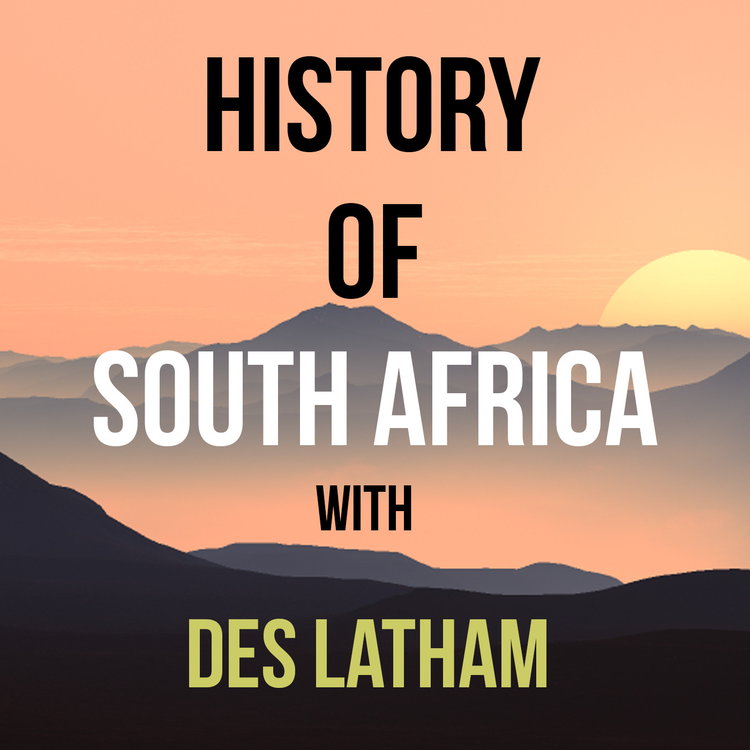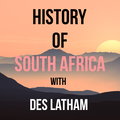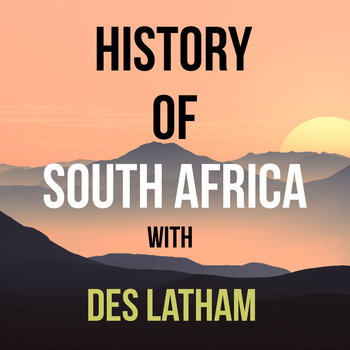
Episode 196 - An Irishman-penned Cape Qualified Franchise Constitution and Boots Cathcart on the Ground
Loading player...
This is episode 196 and we’re covering the movement towards sef-government and the first Cape Constitution which included what’s known as a qualified Franchise.
A trend had been sweeping British colonies by the mid-nineteenth century where the coming commonwealth was intent on running its own affairs on a country-by-country basis.
The first self-governing colony of the British Empire you could say was Massachussett’s in 1630 showing how long the Americans had been tugging at the British leash before they began their war of independence. But to be strictly accurate it was really the Province of Canada in 1841, and all colonies of British North America became self governing between 1848 and 1855 — except Vancouver Island. Australia was a bit more complex, there were six settler colonies which each achieved self-governing status over quite a long period, between 1852 and 1901.
Well Seven if you include New Zealand, sorry Kiwis, the English system kind of lumped Australasia together.
There had been a tension growing between the mother-country with it’s erratic political system, and the colonies. The plethora of politics that blew back and forth on the headlands of the British voter was head spinning - but by 1850 the British bureaucracy began to gain prominance and in the halls of power, it was whispered that public jobs were going to be based on merit rather than patronage.
As this liberalisation of the system back home began to shake the dusty and cobweb strewn hallways of ancient Britain, the philosophy drifted outwards, like an informed mist, towards the distant colonies.
The problem for the colonists was the liberals wanted black people to have rights, the conservatives vacillated. Settlers almost to a man preferred indigenous people of the colonised territories to avail themselves as labour without recourse to the same rights as themselves.
You’ll remember last episode we met new Cape Attorney General William Porter, an Irish democrat who wanted to extend the rights afforded white colonists to all who lived in the Cape.
He arrived in Cape Town in 1839 and was acutely aware of the changing winds back home when it came to bureaucracy.
Confounding a quick solution to the debate about who should be allowed to vote was the fact that officials in the Cape couldn’t get along. Chief Justice Wylde wanted to have a seat on the proposed lower house of a new Cape Legislature, even though he was a technocrat.
Porter himself hankered after a seat in the House of Assembly proposed as Attorney General that officials should be allowed to stand for election without being held responsible to Parliament for their official acts.
Everyone agreed however that the concept of a franchise system was important, and the franchise must be low enough so that everyone had a shot of being allowed to vote. Disallowing coloureds the vote had been the major reason at least two Colonial Secretaries had delayed self-government in South Africa. This was known as the Cape Qualified Franchise. What we must keep in mind is that the ideology of utilitarianism mixed with evangelicalism was characteristic of the new order. However, it was tempered by fear. There were two factions debating this in 1850 through to 1853. One faction sought a narrowly based electorate to be achieved by high property qualification, and the other a widely based electorate to be achieved by a low property qualification.
Speaking of the war, it was about to come to an end. Burned itself out so to speak.
When Lieutenant Colonel Cathcart had arrived in the Eastern Cape, his initial strategy of ending the war was to do what other British commanders had done, start building fortified posts.
A trend had been sweeping British colonies by the mid-nineteenth century where the coming commonwealth was intent on running its own affairs on a country-by-country basis.
The first self-governing colony of the British Empire you could say was Massachussett’s in 1630 showing how long the Americans had been tugging at the British leash before they began their war of independence. But to be strictly accurate it was really the Province of Canada in 1841, and all colonies of British North America became self governing between 1848 and 1855 — except Vancouver Island. Australia was a bit more complex, there were six settler colonies which each achieved self-governing status over quite a long period, between 1852 and 1901.
Well Seven if you include New Zealand, sorry Kiwis, the English system kind of lumped Australasia together.
There had been a tension growing between the mother-country with it’s erratic political system, and the colonies. The plethora of politics that blew back and forth on the headlands of the British voter was head spinning - but by 1850 the British bureaucracy began to gain prominance and in the halls of power, it was whispered that public jobs were going to be based on merit rather than patronage.
As this liberalisation of the system back home began to shake the dusty and cobweb strewn hallways of ancient Britain, the philosophy drifted outwards, like an informed mist, towards the distant colonies.
The problem for the colonists was the liberals wanted black people to have rights, the conservatives vacillated. Settlers almost to a man preferred indigenous people of the colonised territories to avail themselves as labour without recourse to the same rights as themselves.
You’ll remember last episode we met new Cape Attorney General William Porter, an Irish democrat who wanted to extend the rights afforded white colonists to all who lived in the Cape.
He arrived in Cape Town in 1839 and was acutely aware of the changing winds back home when it came to bureaucracy.
Confounding a quick solution to the debate about who should be allowed to vote was the fact that officials in the Cape couldn’t get along. Chief Justice Wylde wanted to have a seat on the proposed lower house of a new Cape Legislature, even though he was a technocrat.
Porter himself hankered after a seat in the House of Assembly proposed as Attorney General that officials should be allowed to stand for election without being held responsible to Parliament for their official acts.
Everyone agreed however that the concept of a franchise system was important, and the franchise must be low enough so that everyone had a shot of being allowed to vote. Disallowing coloureds the vote had been the major reason at least two Colonial Secretaries had delayed self-government in South Africa. This was known as the Cape Qualified Franchise. What we must keep in mind is that the ideology of utilitarianism mixed with evangelicalism was characteristic of the new order. However, it was tempered by fear. There were two factions debating this in 1850 through to 1853. One faction sought a narrowly based electorate to be achieved by high property qualification, and the other a widely based electorate to be achieved by a low property qualification.
Speaking of the war, it was about to come to an end. Burned itself out so to speak.
When Lieutenant Colonel Cathcart had arrived in the Eastern Cape, his initial strategy of ending the war was to do what other British commanders had done, start building fortified posts.

